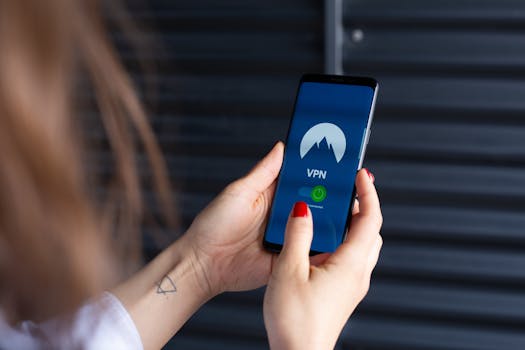How to Use a VPN for Maximum Privacy and Security
Virtual Private Networks (VPNs) have become a must have tool for enhancing privacy and security online. By establishing a connection between your device and the internet a VPN can hide your IP address encrypt your data and shield your online activities from prying eyes. Whether you want to protect information bypass geo restrictions or simply surf the web incognito knowing how to make good use of a VPN is key.

Getting the Hang of VPNs
A VPN operates by directing your internet connection through a server managed by the VPN provider. This action conceals your IP address. Gives the impression that you're browsing from the servers location. The information exchanged between your device. The server is encrypted, creating a safe pathway that thwarts eavesdropping and cyber threats.
To kick off with using a VPN you'll have to select a provider of VPN services. Popular choices include NordVPN for its servers and solid security features, ExpressVPN known for its user friendly apps and robust encryption protocols and CyberGhost which offers specialized servers, for streaming and torrenting purposes.
The Importance of Protocols in VPN Security
The security level of a VPN is significantly influenced by the protocols it employs. Some used protocols are as follows;
- OpenVPN: Recognized for its combination of speed and security this open source protocol is widely preferred.
- IKEv2/IPsec: A protocol that prioritizes robust security particularly well suited for mobile devices.
- L2TP/IPsec: While more secure than PPTP this option tends to be slower compared to OpenVPN and IKEv2/IPsec.
- PPTP: Although fast this older protocol falls short in terms of security when compared to modern alternatives like WireGuard®, which aims for enhanced speed and security.
Addressing Common Problems
In case you encounter difficulties while using a VPN consider these steps to troubleshoot;
- Connection Drops: Activate the kill switch feature to prevent data leakage during disconnections. If connections drop frequently try switching servers or protocols.
- Speeds: Check your connection to ensure it's not too distant; closer servers typically offer better speeds. Experiment, with protocols or close unnecessary background applications consuming bandwidth.
- Access Issues: If certain websites or services are inaccessible while connected to a VPN try clearing your browsers cache or using incognito mode as some websites might block IP addresses associated with VPN providers.
Choosing a VPN provider is crucial for safeguarding your online privacy and security. It's important to opt for providers that have no logs policies ensuring they do not retain any data about your internet activities. To validate these assurances its recommended to seek out third party audits or reviews from sources such as PCMag or TechRadar. It's also wise to select providers located in jurisdictions known for prioritizing user privacy and not part of surveillance alliances like Five Eyes or Fourteen Eyes.
A reputable VPN service should offer customer support to assist you promptly with any issues you may encounter. Many leading services provide round the clock live chat support, for help.
When used correctly a VPN can greatly enhance your security and privacy. By familiarizing yourself with how VPNs function configuring them adjusting advanced settings as needed choosing appropriate protocols effectively troubleshooting issues and opting for a trustworthy provider you can maximize the benefits of this valuable tool. In todays landscape filled with threats taking these precautions ensures that your personal data remains secure as you navigate the online world confidently.
Handy Tips for Maximizing Your VPN Experience
Using a VPN effectively involves more than just turning it on and off. To truly harness the power of your VPN, consider these top five tips to enhance your online security and privacy.
1. Choose the Right Server Location
Selecting an optimal server location is crucial for both speed and access. If you're looking to bypass geo-restrictions, choose a server in the country where the content is available. For better speeds, connect to a server closer to your physical location.
2. Enable the Kill Switch Feature
Most reputable VPN providers offer a kill switch feature that automatically disconnects your internet if the VPN connection drops. This prevents accidental exposure of your real IP address and keeps your data secure.
3. Regularly Update Your VPN Software
VPN providers frequently update their software to patch vulnerabilities and improve performance. Make sure to keep your VPN application up-to-date to benefit from the latest security enhancements and features.
4. Use Multi-Factor Authentication (MFA)
Adding an extra layer of security through Multi-Factor Authentication (MFA) can significantly enhance your VPN's protection. MFA requires you to verify your identity through an additional method, such as a text message or an authentication app, making it harder for unauthorized users to access your account.
5. Read Privacy Policies and Terms of Service
Before committing to a VPN provider, thoroughly read their privacy policies and terms of service. Ensure they have a strict no-logs policy and understand how they handle user data. Opt for providers that have undergone third-party audits for added assurance.